
Fewer people are falling ill with TB, and fewer with drug-resistant illness according to the 2025 WHO Global Tuberculosis Report.

Fewer people are falling ill with TB, and fewer with drug-resistant illness according to the 2025 WHO Global Tuberculosis Report.

The 2025 World Health Organization's (WHO) Global Tuberculosis Report finds progress in prevention, diagnosis, and care—but falling short of targets and curtailed by funding cuts.

This week, read about Merck's advancement of one of its HIV combination therapeutics, Pfizer's influenza vaccine data, the importance of antimicrobial resistance awareness, and more.

Large international study reports higher A-strain protection and acceptable safety profile for quadrivalent RNA influenza vaccine.
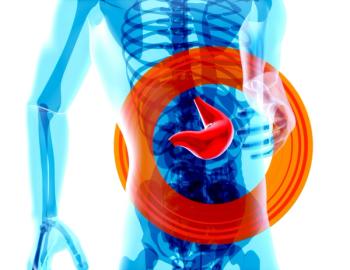
A mother recounts her newborn son's fatal battle with cirrhosis reminding people of the importance of health and education about this vital organ.

Timothy Jenkins, MD, talks about how these important tests are being overly used for respiratory and gastrointestinal presentations and strategies his institution, Denver Health, is employing to reduce testing to save costs and still continuing to achieve optimal treatment outcomes.

David Cameron, PhD, discusses how researchers discovered its antibiotic, Debio 1453, through structure-guided design and advanced it from potent preclinical activity to first-in-human testing.

A review of vaccine safety and effectiveness conducted by the Vaccine Integrity Project, independent of the CDC's ACIP, reflects its stated purpose as "dedicated to safeguarding vaccine use in the US."

Merck’s investigational once-daily, 2-drug HIV regimen, doravirine/islatravir, achieved its primary efficacy and safety end points in a phase 3 trial.

AMR Action Fund CEO Henry Skinner, PhD, MBE, discusses the significance of this week, provides an update on the PASTEUR Act, and explains the differing approaches between Europe and the US with regard to push-pull incentives.

Infectious disease specialists conducted a review of vaccine safety and effectiveness independent of the ACIP to inform vaccinating against COVID-19, RSV, and influenza during this ongoing respiratory virus season.

Kaylee Caniff, PharmD, BCIDP, provides insights on a study looking at how urban and rural healthcare settings differ in terms of prescribing.

This form of prophylaxis showed 79% overall effectiveness across 3 European countries.

Primary completion is expected in Q4 2026 with topline results in Q1 2027, while ECLIPSE 2 and 3 continue enrolling to support potential US and EU submissions.

This week, learn about the first death from a meat allergy caused by ticks, Gilead reports positive top-line data showing its investigational combination therapy, bictegravir/lenacapavir was efficacious and safe, a discussion around antibiotic alternatives for MRSA, and more.

Nathan Shively, MD, talks about the increase of this antibiotic at his institution over the last several years for a variety of infections, particularly osteomyelitis. He also provides insights about dalbavancin's profile including its efficacy and adverse effects.
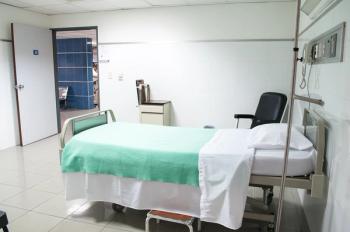
The Leapfrog Group has released its Fall 2025 Hospital Safety Grades showing states such as Utah and New Jersey remain in the top 5 of rankings. Data on health systems is also included in the report.
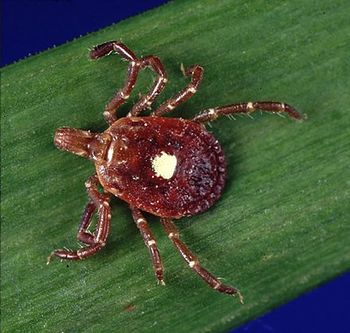
A healthy New Jersey man died from the allergy after eating red meat. Results from a blood sample collected post mortem found that he had been sensitized to the α-gal sugar, which is found in mammals. The blood sample results indicated the man had an extreme reaction, in line with what is seen in fatal anaphylaxis.

ByHeart Whole Nutrition Infant Formula is the product involved in the recall. Fifteen infants have been hospitalized in 12 states prompting a federal investigation. Clinicians are urged to treat on suspicion and report all cases.

Gilead reports its investigational single tablet of bictegravir and lenacapavir was efficacious in people with HIV who are virologically suppressed and who switched from taking multitablet regimens. The company says its phase 3 study results will form the basis for its future regulatory submissions.

During National C difficile Awareness Month, the Peggy Lillis Foundation is working toward greater awareness about prescribing practices as well as cleaning methods that can prevent infections.

The tool's developer, LIV Process, says it has created a water-based reagent that illuminates Clostridioides difficile on surfaces so teams can verify cleaning in real time.

Rachel Britt, PharmD, BCIDP, provides insights on an evolving understanding of the long-time antibiotic’s limitations for these infections and provides guidance on other agents and the role of diagnostics in finding the best agents for patients.

Immunocore’s first-in-human study of its bispecific, IMC-I109V, demonstrated early antiviral activity and a favorable safety profile, supporting continued development of the TCR bispecific candidate as a potential functional cure for chronic hepatitis B.
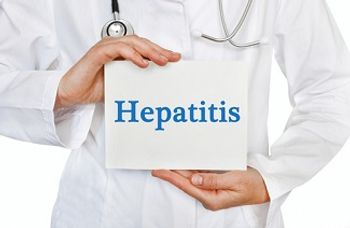
In Vir Biotechnology’s phase 2 Solstice study, 66% of participants with chronic hepatitis delta (CHD) receiving a monthly dose of combination tobevibart and elebsiran achieved undetectable hepatitis delta virus (HDV) RNA at Week 48.

Seven months of clinical data corroborated emergency authorization of 2024-2025 mRNA COVID-19 vaccines for circulating JN.1 subvariants.
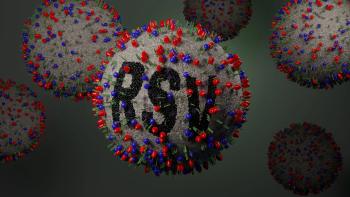
RSV vaccines protected older adults against RSV-related hospitalization over 2 seasons, although with less effectiveness for those with immunocompromise or cardiovascular disease.

This week, read about the FDA's approval of IV antibiotic, Contepo, for complicated urinary tract infections, penicillin‑binding proteins, post-exposure doxycycline for Lyme disease prevention in young children, and more.
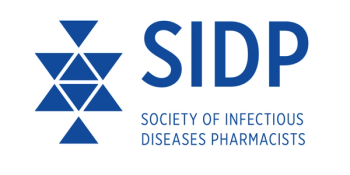
PBPs are more than static β lactam targets. Host conditions rewire PBP activity and peptidoglycan architecture, shaping tolerance, resistance, and how we design salvage regimens.

Despite a 2018 American Academy of Pediatrics clinical update that recommends use of postexposure prophylaxis for prevention of the tick-borne disease in children younger than 8 years, Wesley Kufel, PharmD, BCPS, BCIDP, FCCP, FIDSA, points out many clinicians are unaware of this. He also discusses its efficacy at preventing the disease in this patient population.